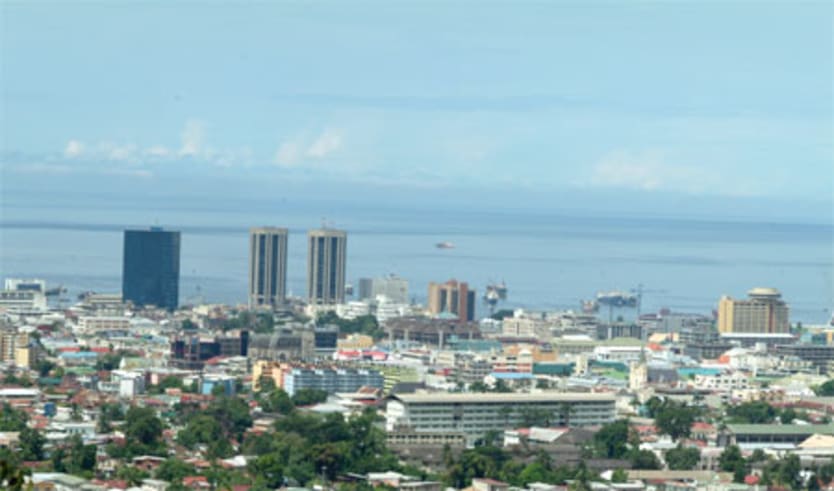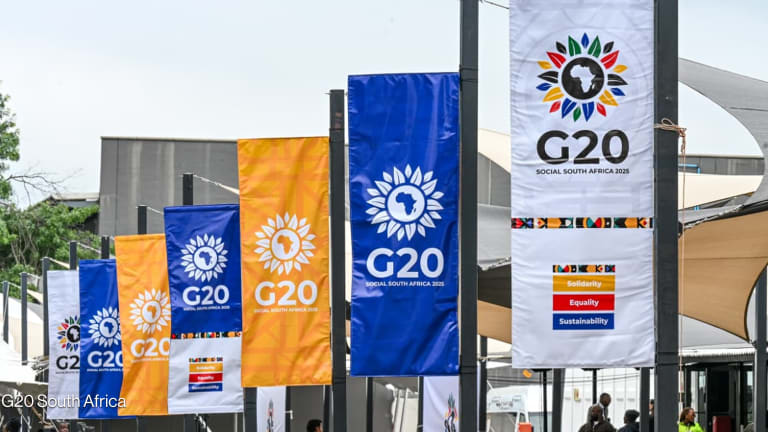
As heads of state prepare to descend upon Trinidad and Tobago for the Fifth Summit of the Americas, societal actors from Ottawa to Buenos Aires are already gathering to discuss development priorities – and what many argue is civil society’s exclusion from the summit’s decision-making procedures.
Established by the Organization of American States in 1994 and meeting every three to four years, the Summit of the Americas remains this hemisphere’s most prominent gathering of government, nonprofit and industry representatives as well as labor and youth advocates. This year, societal actors will gather for three days beginning April 14; world leaders will meet April 17-19.
But the degree of public participation remains very much in question, as does the commitment to summit mandates. The 34 heads of state jet into Port of Spain only after the civil society, youth and private sector forums conclude, and many of the more than 600 mandates derived from previous summits remain unimplemented.
“It is an opportunity to have your voice heard,” said Chief Ricardo Bharath Hernandez of the Caribbean Organization of Indigenous People. “Whether or not they respond, that is another story.”
Bringing together hundreds of leaders from indigenous communities, non-governmental organizations, academics, development agencies and faith-based groups, the attendees will attempt to build on a series of preliminary consultations organized by OAS. Key topics of discussion include environmental sustainability, human rights and entrepreneurship.
Carlos Ponce, general coordinator of the Latin America and Caribbean Network for Democracy and director of the Consorcio Desarrollo y Justicia, applauded OAS’s recent efforts to improve its civil society participation. Five pre-forum meetings have been held as part of the consultation process, he noted, and small grassroots groups were offered funding to encourage participation.
“I must recognize that the OAS has been improving its civil society participation initiative,” he said. “With this summit, [Trinidad and Tobago’s] government – with the help of the government of Canada, USAID and the OAS – has been implementing a sub-regional consultation process.”
It is unclear, however, whether civil society’s involvement in the run-up to the summit will translate into greater involvement throughout the event. At least summit veteran Jennifer McCoy, director of the Carter Center’s Americas Program, is skeptical.
“Not to have access to observe the plenary meetings or anything around the summit itself, this has been quite disappointing,” she said.
McCoy noted during previous summits, social actors were invited to receptions and allowed to monitor plenary meetings.
This month, world leaders and civil society delegates will gather at different dates and in separate locations, and only interact formally at an April 17 session that is billed as a dialogue between foreign ministers and “social actors.” This entails 30-minute sessions each with civil society, labor, indigenous people, private sector and youth representatives.
This setup may not prompt the wide-ranging exchange societal representatives are hoping for.
“In the past,” said McCoy, “these types of forums have been a series of two-minute presentations by various civil society representatives, and then some prepared responses from the foreign ministers or whatever designate they send, and it has not been a real conversation or exchange.”
Ponce noted: “The problem is that not all the governments like civil society organization because they don’t want a moral shadow in their countries or they don’t like people that ask for institutional independence, accountability, rule of law, human rights, anti-corruption initiatives, economic and social rights for the disadvantaged communities.”
Even if civil society is successful in imparting its agenda into the final draft document, OAS mandates have a dubious history of implementation. Democracia Activa, a network of advocacy organizations monitoring the implementation of summit mandates, recently presented its scorecard to OAS in Washington. It indicated that the majority of governments in the Americas have regressed or acted in opposition to the commitments signed at prior summits.
Ironically, the Quebec City and Mar del Plata summits called on governments to facilitate civil society’s participation in inter-American issues.
McCoy attributed much of the lag in implementation to a lack of funding.
“The mandates – what they mostly need is funding in order to carry them out. That’s always the difficulty: getting commitments and funding either from multilateral institutions or from governments themselves,” she said. “In particular during this international financial crisis, that’s going to be the biggest challenge.”
But Beverly Beckles, chair of the Civil Society Steering Committee, suggested the NGO community is partly responsible.
“Much will depend on representations made by civil society bodies to their respective government,” she said. “In the final analysis, civil society has the responsibility of seeking to impress upon respective governments the absolute need for attention to be given to issues, which have a negative impact on the population.”
Civil society participants agreed their efforts will not cease with the conclusion of the summit in Port of Spain.
“We certainly hope to agitate after the actual summit, to continue to lobby so that they will look at whatever has been presented to them,” Hernandez said.
Ponce noted: “We keep pushing until we see a time of change. That is the difference between the representatives from the governments and us as civil society.”








